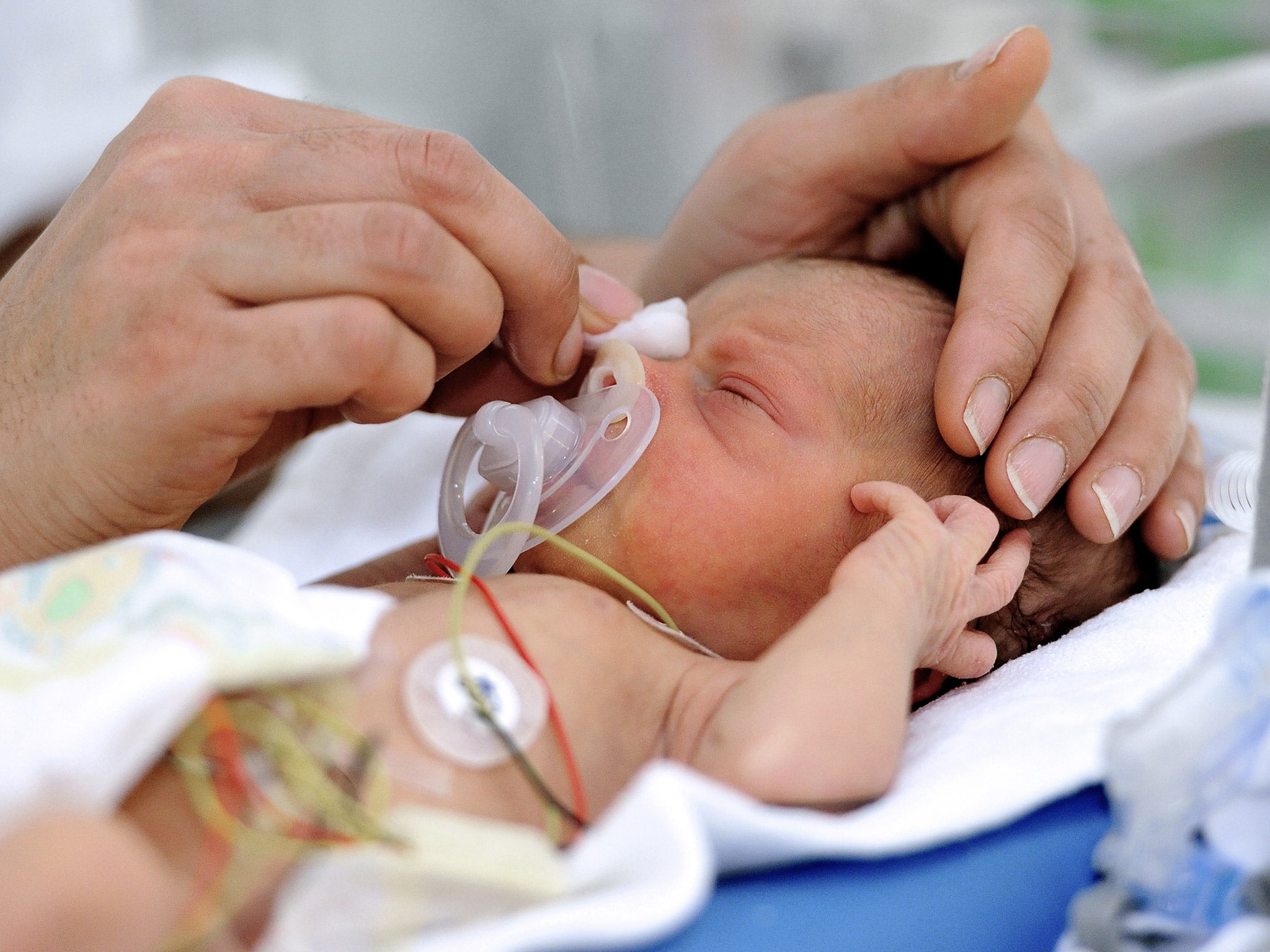Doctors warned me my premature daughter might struggle at school – but teachers don't know how to help
Research into how children born prematurely might be affected later in life is only useful if it leads to extra support for early babies and their parents

The night before my daughter was born, a neonatal doctor sat at my bedside and gave me the worst case scenario: brain damage, cerebral palsy, vision and hearing impairment, behavioural issues and a whole host of chronic health problems.
“And a low IQ,” he added with a nervous laugh. “She might not be top of the class at school.”
His intentions were good. I’d gone into labour 12 weeks early and, in his own clumsy way, he was trying to prepare me for the rollercoaster ride of the neonatal intensive care unit.
The endless days staring helplessly into an incubator at a baby you can’t hold with wires poking out of every part of them. The long nights spent willing them to make it through to the morning. The alarms that sound every time your baby’s heartbeat stops or their blood saturation levels fall.
In the event, my daughter left hospital 12 weeks later with no apparent long-lasting health problems and a “wait and see” diagnosis on her cognitive development. She was a sickly baby, but just after her first birthday she was signed off by the paediatrician and we were left to figure the rest out for ourselves, like every other set of new parents.

So I can’t help feeling irked when I see research on how premature babies fare when they grow up.
The latest study, from McMaster University in Ontario, Canada, suggests that babies born prematurely are more likely to be unemployed and unmarried as adults, while previous reports have suggested they grow up neurotic and are likely to be less intelligent and wealthy in later life.
These studies are unhelpful, not least because they potentially stigmatise children and young adults from the moment they are born – but also because the findings are not followed up with practical support.
My daughter is 10 now, but not one of her teachers has had any knowledge on how her prematurity might have impacted on her learning.
She’s top of the class for English, but struggles with some aspects of maths. While there is a body of research to suggest this is common trait in children who were born prematurely, when I’ve mentioned it to her teachers, they’ve been very dismissive.
I’m not saying teachers are to blame – far from it. But in an education system which seems to offer very little support for “preemies”, it’s hardly surprising some aren’t faring as well as they could.
Right now, schools are not required to know which children in their care were born very prematurely (less than 32 weeks gestation) or extremely prematurely (less than 28 weeks gestation). While parents of premature children can request their child starts school later, particularly if their early arrival means going into the school year above the one they were originally destined for, this can be a long, drawn-out process for parents, and with no guarantees at the end of it.
And the sensational headlines distract from the complexity of the issue: many of the the risk factors associated with premature birth – a mother aged under 18, maternal smoking, alcohol and drug use, domestic violence or poor healthcare during pregnancy – mirror those that put any child at an educational disadvantage. That makes it even more shocking that there is so little support for children and young people who are born prematurely.
While I can’t prove it, I’m pretty sure growing up in a stable environment, with food, shelter and plenty of love has helped my premature baby grow into a bright, happy 10-year-old (even if she sometimes needs a bit of extra help with her sums).
But I sometimes think about the twin boys next to her on the neonatal intensive care ward, who were visited just once by their mother – a young woman with a drug problem who already had more children than she could handle – and went straight from hospital into local authority care.
With so little support available in the education system, I wonder whether they have fared so well.
It’s helpful, of course, to know more about how children are affected by prematurity. But unless it’s followed up by practical support, this kind of research simply stigmatises children. I’d love to see it being used instead to give all premature children the chance to catch up with their peers.
Join our commenting forum
Join thought-provoking conversations, follow other Independent readers and see their replies
Comments
Bookmark popover
Removed from bookmarks